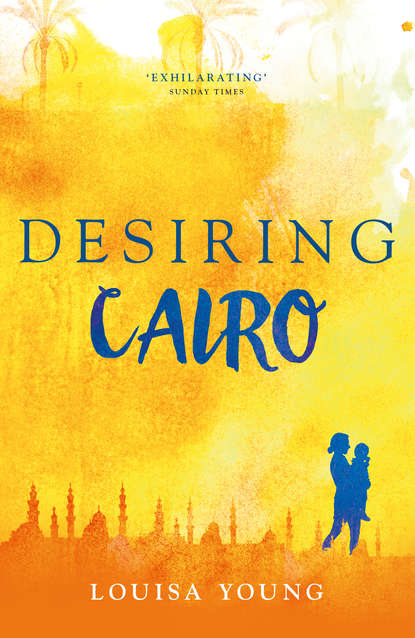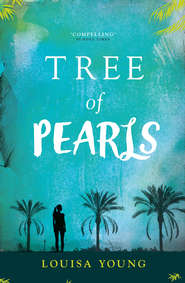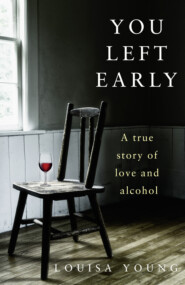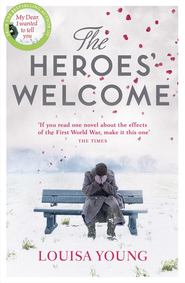По всем вопросам обращайтесь на: info@litportal.ru
(©) 2003-2024.
✖
Desiring Cairo
Автор
Год написания книги
2019
Настройки чтения
Размер шрифта
Высота строк
Поля
So. Mid-morning, September the eighth. Nine days after Princess Diana was killed, two days after her funeral. You can probably imagine why I had been hiding my head under a cushion for a week. Young mothers dead in car crashes upset me no end. Cover their faces, and all that, when they die young. And cover my face too. Deep in the sand.
Watching (because no, I didn’t join in) the national grievathon made me want to spit. This happens every day. Every day death turns people inside out, and when they get themselves right side out again they don’t fit any more. Every day grief craps in the corners of someone’s mind, somewhere where they can’t find it, and if they can they can never get rid of the smell. To see it all writ so large and so sentimental for someone who we only saw on television, made me, what, angry. Resentful. I wasn’t proud of that. Part of me would have liked to unite with the nation – truly. I get lonely out here, being a curmudgeon and an eccentric. But I kept wanting to shout at them. I’ve lost to death, I know what it is – and this is not your loss. Haven’t you any grief of your own?
And for her children it’s just motherlessness. Motherless children. Like so many.
Anyway. That morning. The doorbell rang. I answered it. There stood a young man in beautifully cut but unavoidably vulgar white clothes, with a dark overcoat which didn’t really know what to do with itself slung over his shoulders. Or perhaps it was his shoulders which didn’t know what to do with an overcoat. He looked too young for his clothes, his hair too short. Beside him was a large suitcase. He had a small teardrop-shaped aya of the Qur’an in gold hanging on a chain round his neck, but I didn’t need that to tell me he was Egyptian. There is something about that country, and it was all over him. Furthermore I knew his face.
He smiled a little nervously, the look at odds with his flashy clothes. ‘Salaam alekum,’ he said. ‘Madame Angelina? Good morning. Hello.’
I got the impression that he wasn’t sure which greeting was the correct one for the circumstances. Not knowing quite what the circumstances were myself, I wasn’t able to help him.
‘We alekum elsalaam,’ I replied automatically.
‘Amira Amar,’ he said quietly. Amira Amar means Princess Moon. Amar means beautiful, as well. It is a name some people used to call me when I stayed? lived? when I was in Egypt, ten years ago. After I ran away from Harry because he threw the chair out of the window at me because he thought I knew that my sister was a prostitute and didn’t care, whereas in fact I hadn’t a clue. I ended up in Egypt because it was somewhere I could work. I stayed there because that is what Egypt is like.
I was a belly dancer.
God, it seems strange even now to use the past tense. If I was a belly dancer, then what am I now? I am now … a single mother, only the child is not mine. Oh well – she’s mine, damn right she is, but it was only a year and a half ago that Janie’s ex-boyfriend Jim decided to claim her as his, and gave us all a bit of a runaround until it turned out that he wasn’t her father after all. So I live with the tiny yet fundamental fear that any Tom, Dick or Harry (and yes it might have been Harry) that my sister shagged in the course of her professional engagements (though she didn’t shag Harry professionally – no, that was personal. As far as I know. Though of course she’s not here to tell me. Harry said he was drunk and thought it was me. God save us) … any Tom, Dick or Harry might turn up and claim her, and have a claim.
So, I am an ex-belly dancer with a slightly gammy leg from breaking it in three places in the accident which killed Janie. (See how cool I am? I say the accident killed her, not that I killed her. Two years ago I would have said I killed her. Now that I know things about her that I could kill her for, I am more forgiving of myself.)
So, I am an ex-belly dancer with a gammy leg and a beautiful child and a dead sister. I know a little about Arab social history and culture – particularly through the dancing and costume – and I earn a living as some kind of small-scale but specific expert on that. I don’t call myself an expert. The first thing you learn about anything worth knowing anything about is that you know nothing. Know about Arab culture? It would take you seven hundred brains and seven thousand years. But I wrote a book on belly dancing, and a few editors and journalists know my phone number, and nobody else whose number they have knows anything about belly dancing, so I am cast. And I write about other things, and teach sometimes, and do some editing sometimes for some of the magazines I’ve written for. Once I was costume consultant on a TV series of The Arabian Nights. It’s not like when I used to jet off to Jordan to dance at weddings. But that’s not necessarily a bad thing.
What else? I try to lead a quiet life because I think that is best for Lily. Every now and then I yearn for Egypt, and for love, and for the beautiful clear sense of being right in my skin, right in the world, that I used to get when I was dancing. But though I am a bust-up dancer, and know what I have lost, I don’t like to think of myself as broken. So I carry on as normal: working, taking Lily to school, seeing friends. Lily is quite enough joy and glory, so I don’t resent my stationary existence. I love and cherish it. It seems safe. Or did, until Jim came threatening it, and Ben Cooper the Bent Copper started blackmailing me and forcing me into the path of Eddie Bates, bastard, gangster, criminal mastermind and sexual obsessive. I describe him lightly, because he is the most frightening thing I have ever known.
But that’s over. He’s in prison. It’s safe again.
I do keep a list of the men who I hope are not my child’s father: Eddie Bates, Ben Cooper, Harry. Not necessarily in that order.
And so that is me, and I still live up in the clouds in my top floor flat in Shepherds Bush, and on my doorstep holding out his arms and hands and calling me a name from long ago, the name of someone who I certainly am not any more, stands – oh my God, it’s one of Abu Nil’s boys. It can’t be the big one, Sa’id. Then … it must be Hakim. Hakim el Araby. Last seen in Luxor in 1987. Hakim, the sweet little scamp from the alabaster family at Thebes.
TWO (#u4c205b74-8012-598e-bbb0-a212cb33e034)
Luxor (#u4c205b74-8012-598e-bbb0-a212cb33e034)
‘Hakim,’ I said.
‘Sister,’ he cried, and grinned at me and poured a flood of the beautiful language over me, the precise meaning of much of which passed me by, though the spirit was clear. He was delighted to see me, he was amazed to find me home, what a long time it had been, and how was my health, Alhamdulillah, praise to God, and that of my father and mother, and so on, and so forth.
I invited him to step inside and take coffee. For a moment I wondered if he was old enough to drink coffee. He must have been ten when I saw him last, and here he was, grown up. Sort of. He refused the entrance and the coffee twice and I almost laughed. Here he is with his suitcase, straight from the airport, so recently left Egypt that I can smell the aroma of apple tobacco on his clothes, and his courtesy will hardly let him admit that he is here, and presumably for a reason.
‘Come in, come in,’ I said, and pulled his suitcase inside the door and led him to the kitchen where I found myself making ahwa turky – coffee stewed up the Egyptian way in my old tanaka – instead of a nice pot of espresso as I normally do. Ahwa turky made with Lavazza – it wasn’t bad, actually.
He sat gingerly at my kitchen table and, as you do, looked around, taking stock of me and my life. I had no idea what he made of it. I hadn’t seen him since 1987, in Luxor; he’d been a kid, drawing pictures in the dust, playing football in the street, chasing scorpions, escaping his big brother. There were plans to send them to school in Cairo, and they didn’t want to go. Presumably he had gone – he looked provincial, but not that provincial. More Cairene than Luxori. If I could still pick up those nice distinctions.
His father, now, his father I knew. Well, used to know, when I was there. It’s a bore, this language thing. I could find my way round a newspaper or a novel in Arabic, with a dictionary; I could converse and grow fond and build a friendship, but maintain it? Write? Correspond? No. So there was a man, Ismail el Araby, known in the village way as Abu Sa’id, father of Sa’id. I used to call him Abu Nil, for some reason. Father of the Nile. He was one of the kindest I ever knew, with a face as brown and smooth and fissured as a kabanos, and a sneaky sense of humour, and two handsome sons, and secrets, who I liked enormously, but the friendship died. Killed by circumstance and illiteracy. My illiteracy. I had put it down as one of those magically unlikely friendships, of its time and of its place, like a Bob Dylan ballad, complete.
And now here’s his boy, here in my flat.
There’s no telling what my flat would mean to Hakim. My piles of fruit and laundry and newspapers, Lily’s dolls on the sofa all seated in a row reading picture books, the late roses from Mum’s garden dropping petals all over everywhere, the bag of empties waiting to be taken to the bottle bank. Would he be thinking me profligate, sluttish, what? I had a sudden and sharp resurgence of a feeling I often had in Cairo; an awareness of incomprehension, of the impossibility of complete comprehension: ‘I do not know what all these people know; I have not learned what they all learned, they share something that I cannot share.’ There were times when I hadn’t a clue. Everybody laughing, and me bemused. Everybody worried, and I could not, could not, using all my experience and intelligence and imagination, work out why. Just humans, bred in different habits. Before and after the marvels of the individual, over and under all our common humanity, there is this thing. We are different. It delighted me far more often than it alarmed me, even in a world so very … different, shall we say … for women. But it was always there. I was a foreigner, I could not truly understand. I was not at home. And for a moment, watching Hakim looking at my kitchen, I felt a sudden cold flurry of not being at home.
But of course this flurry was not mine, it was his. I was right in my territory; he was the one who was …
‘Hakim, have you been to England before?’
In the tiny moment that I waited for his answer, I realised he was wondering whether to lie to me. Why would he want to do that?
‘No,’ he said. He looked so damn young. Silky, like a boy who doesn’t shave yet. Chicken-boned.
‘What are you doing here?’ I asked, in a completely friendly way, of course. He took his coffee, smiled broadly, ignored the question and offered me a cigarette. Marlboro. Of course. The flash Egyptians always smoked Marlboro, while the amazed foreigners puffed away on Cleopatra 100s at about half a piastre a packet. Hakim, evidently, is baby flash. I refused the fag, and opened the window. He made no ‘oh would you rather I didn’t’ noises. It didn’t matter. Lily, with her smoke-susceptible eczema and sweet delicate little lungs, wouldn’t be home for several hours. The doctor said I shouldn’t let anyone smoke in the flat at all, since the asthma scare, but … oh God. Is he young enough for me to tell him not to smoke? It’s hard to tell an Egyptian anyway: so inhospitable, so northern health-obsessive. Maybe later. Anyway the window was open. The distant hum of the A40 filtered vertiginously up, up and past to diffuse in the clouds.
‘You look well,’ he said.
‘Alhamdulillah,’ I replied. Praise to God.
He started to speak in Arabic again, and I stopped him.
‘My Arabic is not good,’ I said.
‘It was,’ he said.
‘It’s been many years. I’m out of practice.’ I learnt my Arabic initially from love songs. While I danced I soaked up all sorts of useful vocabulary: Habibi, kefaya, enta ’omri – my darling, enough, you are my life. Elli shuftu abl ma teshoufak enaya, what I saw before my eyes saw you … It did get broader after that, but … it was a long time ago.
‘It’s OK. My English is better. You have a husband?’
‘No.’
He looked at the dolls. Their names are Tulip, Liner, Rose, Rosie and Rosabel.
‘Just a child,’ I said.
I wasn’t actually prepared to go through a delicate dance around his sensibilities about this. I don’t explain the whole story to people. It’s too long, too private, too complicated, and, dare I say it, too boring for me to witness their stock reactions of amazement, shock, sympathy, incomprehension, in reaction to the weirdnesses that underpin my life. That are my life. And Lily’s. It’s not their business. If and when it becomes their business, I tell them. But very few new people need to know the whole story. Anyway I’m fifteen years older than him.
He raised an eyebrow.
‘Child, no husband,’ I said. ‘That’s right.’
‘Divorced?’
If we had been in Egypt, I would have said yes, or said that the husband was dead, just to make life easier; here, I may not tell the whole truth, but I don’t need to lie for comfort or protection.
‘No,’ I said. ‘Never married.’ Well, it was true. Janie never was married to Lily’s father, whoever he was. And I have never been married.
Pity crept over his face, and incomprehension, and concern, and distaste, all at once, like the rainbow colours of oil skimming over water.
‘It’s different here, Hakim,’ I said. ‘It’s no shame. No dishonour. If anything, the dishonour is to a man who leaves a woman and child. There is no dishonour to the woman.’ If only that were quite true, I thought. But if I was going to educate him in Western ways, I was bloody well going to educate him in the ways of rational London post-feminism, not in those of hypocritical Tory backbenchers. He looked utterly unconvinced.
‘How is your father?’ I asked, realising that I hadn’t asked before just at the moment that it suited me to change the subject. ‘Is he well?’











